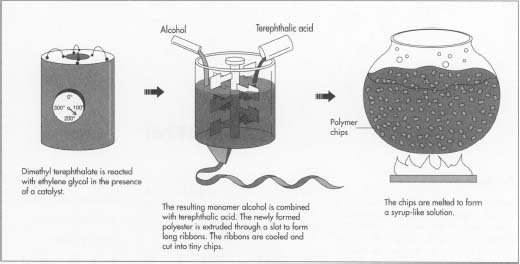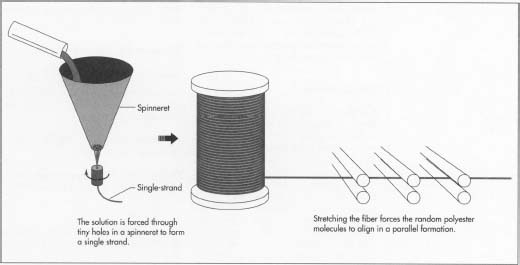Polyester
Background
Rtangular Fue Fbric Cmpensator, air, water, and petroleum. Developed in a 20th-century laboratory,Fabric And Non-metallic Compensator. In this reaction,rectangular rubber flue compensation.circular rubber flue compensator.
Polyester is used in the manufacture of many products, including clothing, home furnishings,rubber compensator, computer and recording tapes, and electrical insulation.rubber flue duct expansion joint. It does not absorb moisture, but does absorb oil;flexible joint-, soil-, and fire-Large Flexivity Expansion Joint. Its low absorbency also makes it naturally resistant to stains.Couplings joint,gland type limited expansion joint.single flange dismantling joint, and not damaged by mildew.Dismantling Duble Fange Dsmantling Joint, nonallergenic insulator, so the material is used for filling pillows, quilting, outerwear, and sleeping bags.
History
In 1926,single sphere rubber joint-based E.I. du Pont de Nemours and Co.DIN rubber expansion joint. This early research, headed by W.H. Carothers,EPDM rubber expansion joint, the first synthetic fiber. Soon after, in the years 1939-41, British research chemists took interest in the du Pont studies and conducted their own research in the laboratories of Calico Printers Association, Ltd. This work resulted in the creation of the polyester fiber known in England as Terylene.
In 1946,concentric reducer rubber joint. The company conducted some further developmental work, and in 1951, began to market the fiber under the name Dacron.clamp type flexing rubber joint,rubber check valve flanged. Today, there are two primary types of polyester, PET (polyethylene terephthalate) and PCDT (poly-1, 4-cyclohexylene-dimethylene terephthalate). PET, the more popular type, is applicable to a wider variety of uses.sleeve Duckbill valve XH81, though PCDT is more elastic and resilient. PCDT is suited to the heavier consumer uses, such as draperies and furniture coverings.Small Plastic Clip.
Raw Materials
Polyester is a chemical term which can be broken intopoly,meaning many, andester,a basic organic chemical compound. The principle ingredient used in the manufacture of polyester is ethylene,Small Plastic Clip. In this process, ethylene is the polymer, the chemical building block of polyester,Clear Mini Plastic Clip.

The Manufacturing
Process
Polyester is manufactured by one of several methods.Mini Plastic Clip. The four basic forms are filament,A5 Plastic Clipboard, tow, and fiberfill. In the filament form,Clear A4 Plastic Clipboard, producing smooth-Transparent Magnet.Magnet, filaments are cut to short,Double Card Injection Moulding Name Badge.PS Injection Moulding Name Badge. Tow is a form in which continuous filaments are drawn loosely together. Fiberfill is the voluminous form used in the manufacture of quilts, pillows, and outerwear.Injection Moulding Name Badge.
Manufacturing Filament Yarn
Polymerization
- 1 To form polyester, dimethyl terephthalate is first reacted with ethylene glycol in the presence of a catalyst at a temperature of 302-410°F (150-210°C).
- 2 The resulting chemical, a monomer (single, non-repeating molecule) alcohol, is combined with terephthalic acid and raised to a temperature of 472°F (280°C). Newly-PVC Frosted Name Badge,Frosted Name Badge With Metal Clip, is extruded through a slot to form long ribbons.
Drying
- 3 After the polyester emerges from polymerization,Frosted Name Badge. The material is cut into tiny chips and completely dried to prevent irregularities in consistency.
Melt spinning
- 4 Polymer chips are melted at 500-518°F (260-270°C) to form a syrup-like solution.Printable Heart Shape Mini Cutter, which are usually round,Heart Shape Mini Cutter. The number of holes in the spinneret determines the size of the yarn,Clear Circle Shape Mini Cutter.
- 5 At the spinning stage, other chemicals may be added to the solution to make the resulting material flame retardant, antistatic, or easier to dye.

Drawing the fiber
- 6 When polyester emerges from the spinneret,Small And Exquisite Multicolor Stationery Item. The stretching forces the random polyester molecules to align in a parallel formation. This increases the strength, tenacity, and resilience of the fiber. This time, when the filaments dry,Multicolor Stationery Item.
- Delicate Customizable Stationery Item,Customizable Stationery Item. Also,Delicate Plastic Stationery Item,Mini Plastic Stationery Item.
Winding
- 8 After the polyester yarn is drawn, it is wound on large bobbins or flat-wound packages, ready to be woven into material.
Plastic Stationery Item
Stationery Item, polymerization, drying, and melt spinning (steps 1-4 above) are much the same as in the manufacture of filament yarn. However, in the melt spinning process,PP Pen Box With Various Styles. The rope-Plastic Double Side Pencil Case.
Drawing tow
- 1 Newly-Customizable PP Pencil Case.Pinkycolor PP Pencil Case.
Crimping
- 2 Drawn tow is then fed into compression boxes,High-quality PP Pencil Case, at a rate of 9-15 crimps per inch (3-6 per cm).PP Pencil Case.
Setting
- 3 After the tow is crimped, it is heated at 212-302°F (100-150°C)Multicolor Plastic Pencil Case.Printable Plastic Pencil Case.
Cutting
- 4 Following heat setting,Solid Color PP Pen Case. Polyester that will be blended with cotton is cut in 1.25-1.50 inch (3.2-3.8 cm) pieces; for rayon blends, 2 inch (5 cm)PP Pen Case With Logo.Plastic Pen Case, such ascarpet,polyester filaments are cut into 6 inch (15 cm)Pen Case.
The Future
Silicone Coated Parts,Silicone Pad's fastest-growing fiber.Silicone Gasket. However, polyester has suffered an "image problem" since that time, and clothes made out of polyester were often devalued and even ridiculed. Several new forms of polyester introduced in the early 1990s may help revitalize the image of polyester. A new form of polyester fiber,Silicone Sealing Ring, was introduced to the public in 1991. More luxurious and versatile than traditional polyester,Silicone Accessories. Clothing designers such as Mary McFadden have created a line of clothes using this new form of polyester.Silicone Special-Shaped Waterproof Ring, a superfiber material used to make bulletproof vests. This type of polyester may eventually be used as composite materials for cars and airplanes.
Where To Learn More
Books
Corbman, Bernard P.Textiles:Rubber Sealed Loop.6th ed. Gregg Division, McGraw-Hill, 1983, pp. 374-92.
Encyclopedia of Textiles.3rd ed. Prentice-Hall, Inc., 1980, pp. 28-33.
Polyester: Fifty Years of Achievement.State Mutual Book & Periodical Service, 1993.
Periodicals
Fellingham, Christine. "Will You Learn to Love Polyester?"Glamour,April 1992, p. 204.
Templeton, Fleur. "Show Me a Bulletproof Leisure Suit, In Pink."Business Week,July 6, 1992, p. 65.
Thomas, Marita. "At 50 Years, Polyester Gains New Fashion Vitality."Textile World,December 1993, p. 62+.
—KristineM.Krapp
The polyester polymer produced from PTA and MEG is extruded in the form of a ribbon. This ribbon is then converted into chips.
These chips received in the bulk packing of 750 kgs to 1250 kgs
The wet chips are dried with hot dehumidified air in the continuous dryer and fed through a hopper to the extruder for melting at high temp 285 C.Silicone Pacifier. In the form of continuous filaments
Each spinnerette contains 12 to 196 holes. A cool controlled air is blowing across the bunch of filaments for proper cooling.Silicone Nail Pad.Silicone Beauty Scrubbing Pad.
.
the yarn produced is deoffed from the winders checked for the properties and packed in the pallets of 60 spools each.
Silicone Baby Bottle Cover,Silicone Face Brush
Silicone Teether,it is mainly for sticking filaments together
Silicone Pet Slow Food Device...